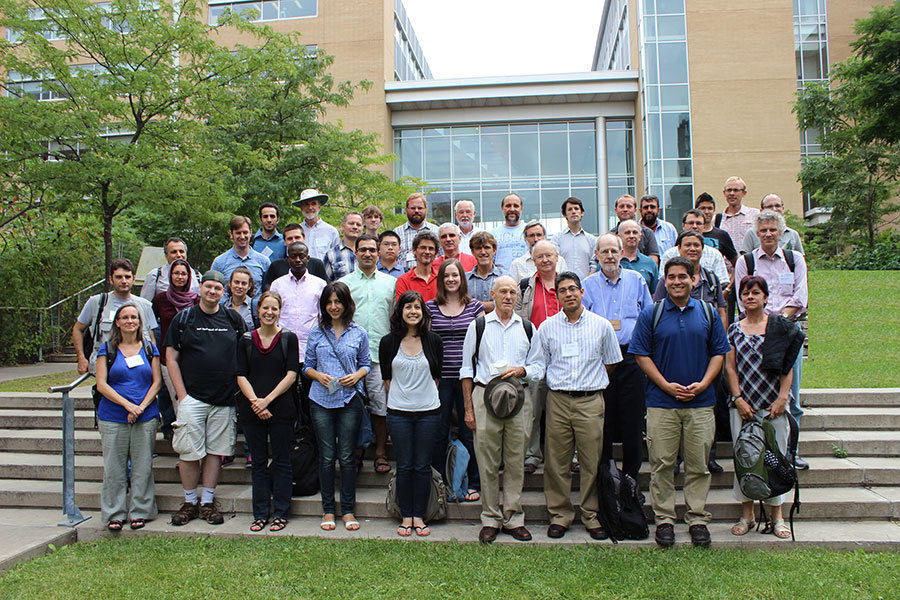Overview
[ Français ]
The main theme of this conference is the invariant subspaces of the shift operator, or its adjoint, on certain function spaces, e.g. Hardy spaces or the Dirichlet space. In particular, de Branges-Rovnyak spaces and model spaces are at the center of attention.
Model spaces have many fascinating aspects. For one, they represent, via Beurling's theorem, the complete set of invariant subspaces of the backward shift operator. As in their name, model spaces, they are also, via the Sz.-Nagy-Foiasé theory, used to represent certain natural contraction operators on Hilbert spaces in that these contractions are unitarily equivalent to the compression on multiplication by the independent variable to a model space.
Parallel to the theory of Sz.-Sz.-Nagy-Foias, de Branges and Rovnyak developed another model based on H(b) spaces. Since the foundation developed by de Branges and Rovnyak, H(b) spaces appeared to be a precious tool in various questions in analysis such as function theory (Bieberbach conjecture, rigid functions, Schwarz-Pick inequalities), operator theory (invariant subspace problem, composition operator), systems and control theory.
The Dirichlet space is one of the classical Hilbert spaces of holomorphic functions in unit disk, maybe second in importance only to the Hardy space. Its name derives from its definition in terms of the so-called Dirichlet integral, arising in Dirichlet's method for solving Laplace's equation, and part of the interest in the Dirichlet space stems from its close connection with logarithmic potential theory. Though much is known about it, there remain several important open problems, most notably the characterization of its zero sets and of its shift-invariant subspaces.
This conference will bring in international experts in this area to present ongoing research. For graduate students and the newcomers to the field, there will be several mini-courses on the basics of these spaces.

